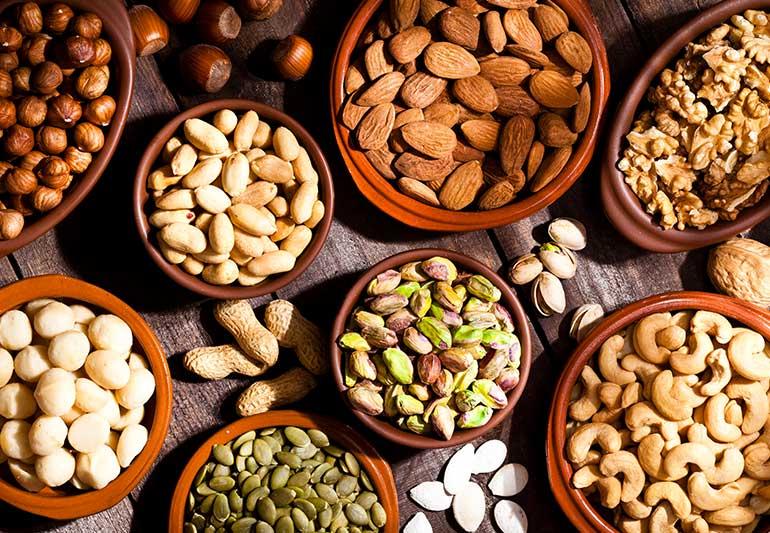Oman today_ Nuts are highly nutritious foods that play an important role in maintaining overall health. Regular consumption of nuts can strengthen the body, improve heart function, reduce stress, and help prevent various diseases. Below is an overview of the health benefits of different types of nuts and seeds.
Pistachios contain healthy unsaturated fats that promote cardiovascular health. They are also rich in antioxidants that help prevent cancer. Pistachios are an excellent source of calcium, magnesium, phosphorus, potassium, iron, folate, and protein. Regular consumption may also help prevent gallstones and reduce the risk of Alzheimer’s disease.
Hazelnuts are among the oldest known edible nuts and grow in clusters on trees. They are rich in fiber, potassium, calcium, magnesium, and vitamin E. Besides being a delicious snack, hazelnuts are also used in cooking and baking and are valued for their high content of minerals and antioxidants.
Almonds, available in both bitter and sweet varieties, are native to the Middle East and have been cultivated for centuries around the world. Their healthy unsaturated fats help regulate blood cholesterol and reduce the risk of heart disease. Consistent consumption of almonds can support weight loss, prevent gallstones, and improve intestinal function. They are also an excellent source of protein, magnesium, phosphorus, zinc, calcium, folate, and vitamin E.
Sunflower seeds, belonging to the daisy family, are packed with potassium, phosphorus, protein, iron, and calcium. These seeds are particularly rich in vitamin E, which has anti-inflammatory properties and helps protect against heart disease. Magnesium in sunflower seeds promotes relaxation of the nerves and muscles, while selenium provides anti-cancer benefits.
Cashew nuts grow as part of a fruit called the Cashew Pear and originate from Brazil before being introduced to India by Portuguese explorers. In addition to their pleasant flavor, cashews are rich in vitamin A and essential minerals. They are not only enjoyed as snacks but are also used in various dishes.
Peanuts are a rich source of plant-based protein and healthy oils. They also contain significant amounts of vitamins B and E. Peanut oil is commonly used in cooking and margarine production. Because of their nutritional composition, peanuts serve as an excellent source of daily energy.
Walnuts have been consumed since ancient times and are among the most valuable nuts in human nutrition. They are rich in phosphorus, potassium, magnesium, protein, and vitamin E. Walnuts can be eaten fresh or dried and are known to enhance brain function, reduce inflammation, and support heart health.
Pumpkin seeds are light green in color and can be eaten raw or roasted. They are high in protein, iron, zinc, and phosphorus. Consuming 100 grams of pumpkin seeds provides about half of the daily recommended intake of manganese, magnesium, and phosphorus. They are particularly beneficial for the elderly to prevent osteoporosis and also help maintain prostate health and reduce joint inflammation.

